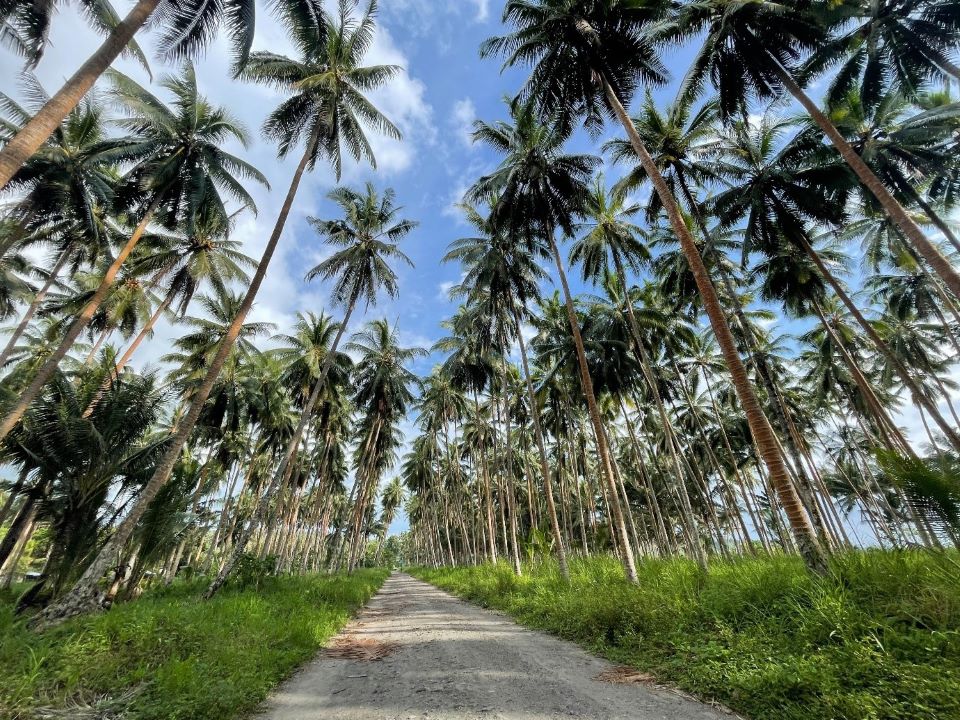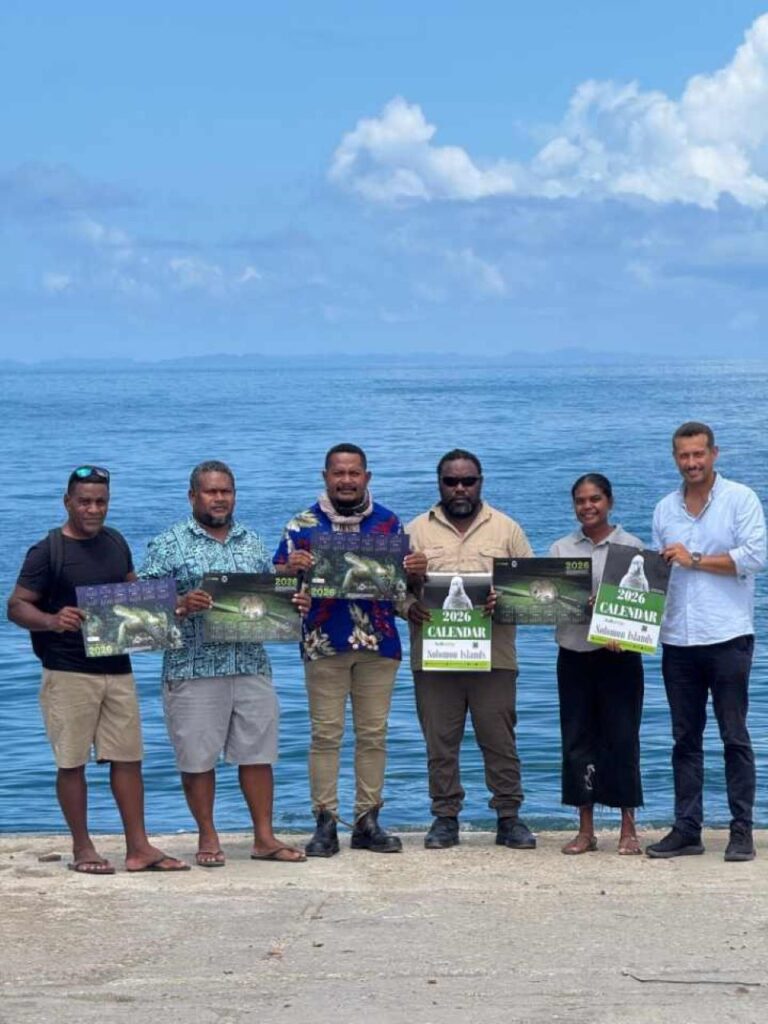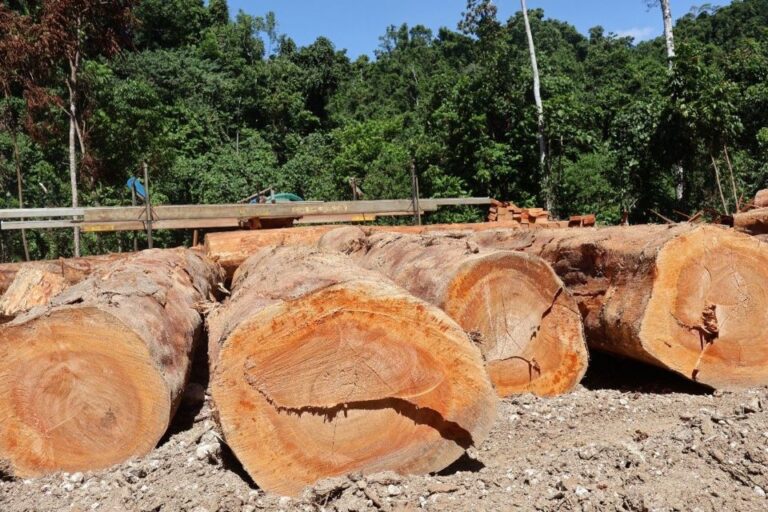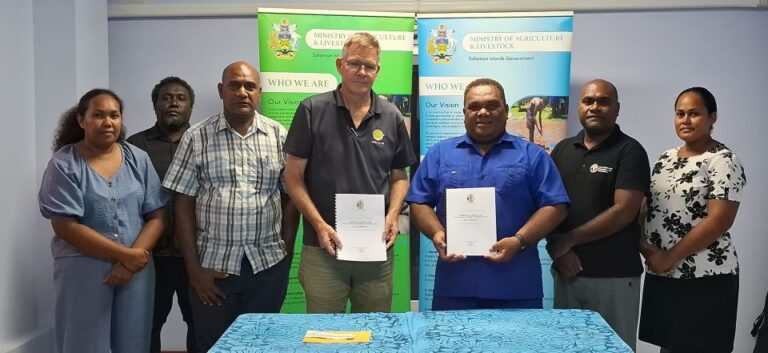THE Coconut Rhinoceros Beetle (CRB) is an enemy of agriculture in Solomon Islands and other parts of Melanesia. It destroys palm plantations and livelihoods.
The damage caused by these beetles reduces the number of coconuts available for food and drinking and can eventually kill the tree, threatening food security and the businesses involved in producing copra, coconut oil and drinking coconuts.
Beetle destruction also means a shortage of palm fronds and timber for building and cultural uses.
In 2019, the New Zealand Ministry of Foreign Affairs and Trade (MFAT) committed SBD $90 million for a five-year emergency response to CRB in Papua New Guinea, Solomon Islands and Vanuatu.
This support has been delivered through the Pacific Biosecurity Response to Coconut Rhinoceros Beetle programme, led by AgResearch NZ and The Pacific Community (SPC), in partnership with biosecurity agencies and industry bodies in the three Melanesian countries.
In Solomon Islands, the Pacific Biosecurity Response to Coconut Rhinoceros Beetle programme has partnered with Ministry of Agriculture and Livestock to manage the impact of CRB.
Their work has made promising progress in identifying a biocontrol to manage CRB in the long term.
Recent re-emergence
CRB was first identified in Samoa in 1909, and it soon spread to nearby countries. A second invasion arrived in Papua New Guinea in 1942.
The adult CRB beetle bores into coconut oil and native/ornamental palm crowns, slowly destroying them by damaging the fronds, the engine room for food production in plants (Photosynthesis).
In the 1960s, research identified a naturally occurring virus that was effective in killing the CRB. A strain of the virus was released as a biocontrol agent across the Pacific and, together with clearing of CRB breeding sites, was effective at keeping CRB populations suppressed in the Pacific for almost 50 years.
Unfortunately, during the last 10 years, a different type of CRB have been invading the Pacific, including in Solomon Islands. Strain “CRB-G”, as it is called, has been arriving in new locations where the original biocontrol virus does not exist. This makes the spread of CRB-G very difficult to control. CRB has had devastating effects in areas where it has been left unmanaged, killing over half of coconut palms in some parts of the Pacific.
The beetle is attracted to lights and can hitch a ride on ships and planes. Breeding sites establish in rotting palm, tree and garden materials. There is evidence that populations spread following cyclones owing to the increased number of breeding sites created by damaged and fallen coconut palms.
New Zealand supports the fight
Pacific biosecurity agencies are working hard to prevent the spread of CRB within their countries and across the region.
The initial focus of the Pacific Biosecurity Response to Coconut Rhinoceros Beetle programme was managing the impact of the beetle. This effort was led by MAL and SPC. It included identification and trapping and monitoring at high-risk sites such as ports, as well as awareness-building and the creation of demonstration sites.
Training has also been provided on effective sanitation measures. These involve destroying breeding sites by cutting down and burning dead palms and logs, and removing compost material. This approach has been shown to reduce beetle numbers and contain spread. A special fungus being applied to breeding sites has also proven effective at destroying beetle populations.
Promising biocontrols
A large part of the Pacific Biosecurity Response to Coconut Rhinoceros Beetle programme, led by AgResearch, has been to research effective, long-term bio-controls for beetle.
New strains of the virus and fungus have been identified and tested on Efate in Vanuatu and at Gizo in Solomon Islands. Another strain of the virus is being tested in PNG. Testing is still underway and the results are promising. In Vanuatu there are signs of palm recovery, despite damage from twin cyclones in April 2023.
Work to confirm the effectiveness of these new strains of virus is continuing. Those strains that are successful are being distributed in places where CRB is present. The virus presents the most sustainable option for control, as it only affects CRB, not other insects, and the beetles will spread it amongst themselves.
The success of the Coconut Rhinoceros Beetle programme in Solomon Islands has been in large part due to the strong working collaboration among stakeholders including MAL, MFAT, AgResearch and SPC.
Source: MAL Media




